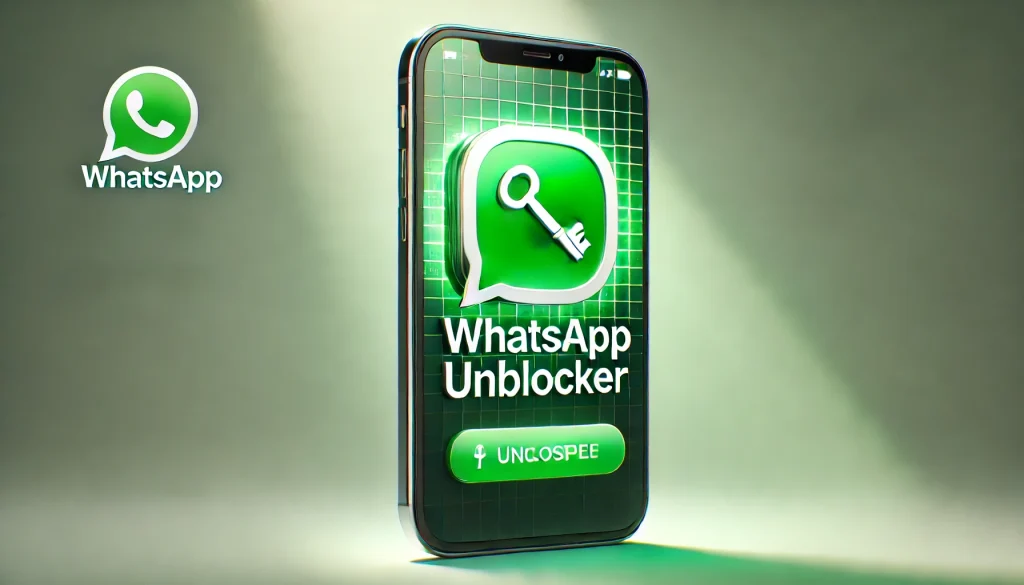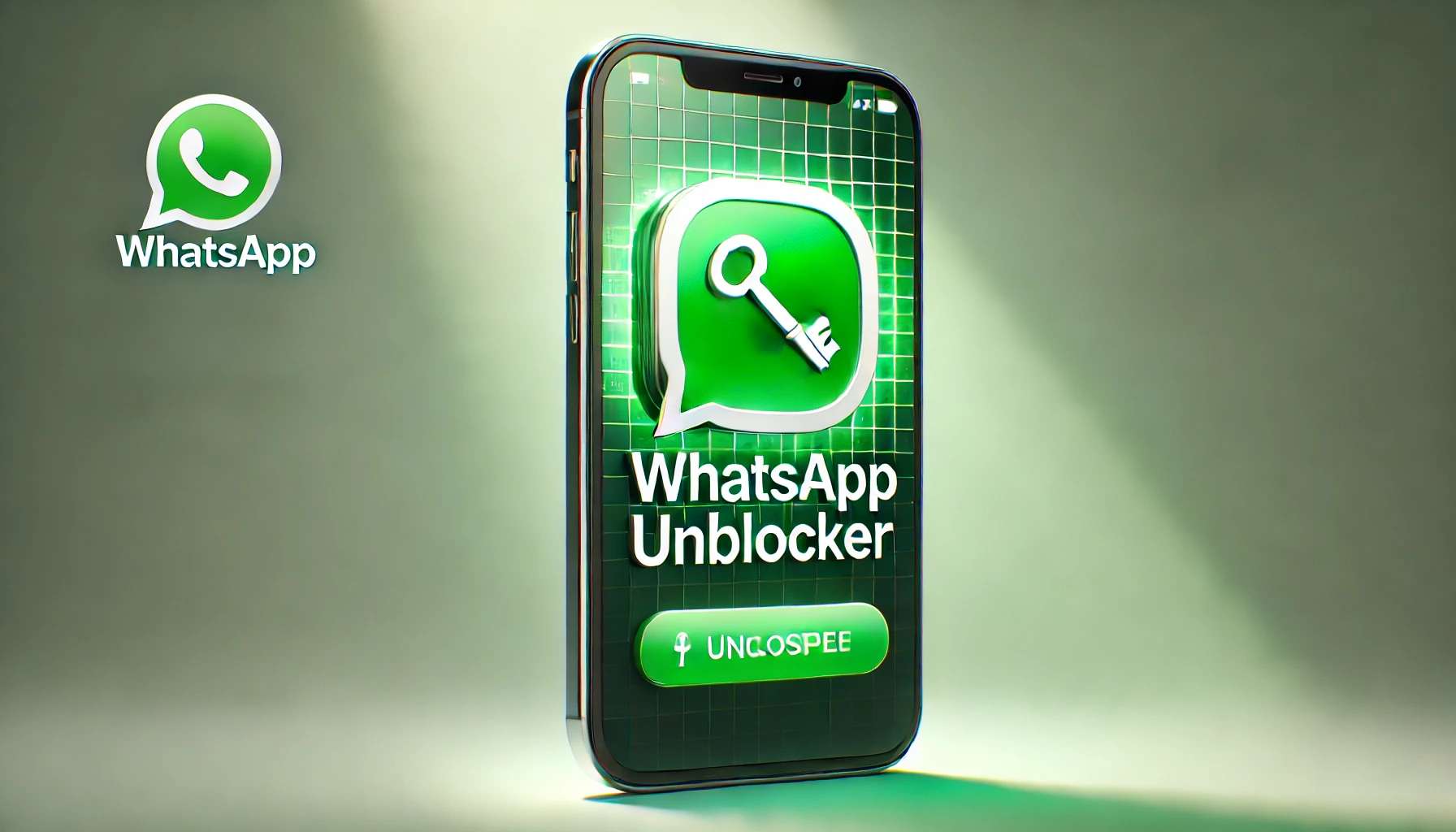
Getting blocked on WhatsApp by a contact can be frustrating, especially when you want to reach out to someone for important reasons. While WhatsApp offers its users the option to block unwanted contacts to maintain privacy, there are tools and techniques that some people search for to “unblock” themselves or bypass the blocking restrictions. These tools are commonly known as WhatsApp Unblockers.
In this guide, we’ll explore what a WhatsApp Unblocker is, how it works, whether it’s ethical to use one, and some safer, more respectful ways to approach situations where you’ve been blocked.
What Is a WhatsApp Unblocker?
A WhatsApp Unblocker refers to any app, tool, or method designed to bypass the blocking feature on WhatsApp, allowing a user to communicate with someone who has blocked them. Typically, when a person blocks you on WhatsApp, you are no longer able to send them messages, see their status updates, or check when they were last online. A WhatsApp Unblocker aims to find loopholes or use tricks to get around these limitations.
It’s important to understand that WhatsApp’s blocking feature exists to protect users’ privacy. Using a tool or app to bypass it may violate WhatsApp’s terms of service and infringe on someone’s privacy. Additionally, using third-party apps that promise to unblock WhatsApp contacts can be risky, as they might compromise your account’s security or lead to your account being suspended.
How Does a WhatsApp Unblocker Work?
Most WhatsApp Unblockers don’t work in the way they promise. Many of these apps or tools claim to bypass the blocking mechanism by using various tricks, such as changing your phone number or creating a new WhatsApp account. However, these tactics come with risks and limitations.
Here are a few common methods that WhatsApp Unblockers claim to use:
1. Creating a New WhatsApp Account
One of the simplest methods to unblock yourself is by deleting your WhatsApp account and registering again with a new phone number. Since blocking is associated with your phone number, switching to a new number can allow you to contact the person who blocked you.
Steps:
- Backup Your Chats: Before deleting your account, backup your WhatsApp chats if you want to restore them later.
- Delete Your Account: Go to Settings > Account > Delete My Account and follow the steps.
- Register a New Number: After deleting your account, register a new number with WhatsApp and use it to contact the person who blocked you.
Keep in mind, however, that this method requires a new phone number, and the person might recognize your new number and choose to block you again.
2. Using a Group Chat to Communicate
Another way to bypass the block is by having a mutual contact create a group chat that includes both you and the person who blocked you. Even if you’re blocked, you can still communicate within a group chat unless the person leaves the group or blocks you there as well.
Steps:
- Ask a mutual contact to create a group chat and add both of you.
- Once the group is created, you can send messages in the group, and the blocked person will receive them.
- If the blocked person leaves the group or uses group privacy settings to block group invitations, this method will no longer work.
This is a temporary workaround and should only be used if the communication is essential and respectful.
3. Changing Your Phone Number in WhatsApp
Some users try to bypass blocking by changing their phone number within WhatsApp itself, which allows them to keep their account but switch the number associated with it. This might allow you to communicate with someone who blocked your old number.
Steps:
- Go to Settings > Account > Change Number.
- Follow the on-screen instructions to change your WhatsApp phone number.
- After completing the change, you can try messaging the person again.
As with creating a new account, this method may allow you to contact the blocked person briefly, but it can also result in you being blocked again.
The Risks of Using a WhatsApp Unblocker
While you might feel frustrated when blocked, using any tool or technique to bypass the blocking feature comes with risks. Here are some key risks associated with WhatsApp Unblockers:
1. Violation of Privacy
Using any method to bypass someone’s block on WhatsApp violates their privacy and intention to avoid communication. Blocking is a feature provided by WhatsApp to ensure users can control who contacts them. Disregarding someone’s decision to block you can damage relationships and cause further conflict.
2. Risk of Account Suspension
WhatsApp strictly prohibits the use of third-party apps or tools that alter the app’s functionality. Using third-party unblocker apps can lead to a suspension or permanent ban of your WhatsApp account. WhatsApp monitors the use of unauthorized apps, and users who violate the terms of service risk losing their accounts.
3. Security Concerns
Many so-called WhatsApp Unblocker apps are malicious. They often ask for excessive permissions, can steal your personal data, and compromise your phone’s security. Installing such apps can expose you to malware, phishing attacks, and data breaches.
4. Potential for Legal Issues
In some regions, using software to invade someone’s privacy may result in legal consequences. If someone has blocked you on WhatsApp and you use methods to circumvent that block, it could be considered harassment depending on the circumstances.
Ethical Alternatives to WhatsApp Unblocker
Instead of using a WhatsApp Unblocker, there are better and more ethical ways to handle being blocked:
1. Respect the Blocker’s Decision
The best approach is to respect the person’s decision to block you. Being blocked can be frustrating, but it’s important to understand that the blocking feature exists to give people control over their interactions. If someone blocks you, they likely have their reasons, and it’s best to move on without attempting to bypass their decision.
2. Reach Out Through Other Channels (Respectfully)
If it’s critical that you contact the person (for instance, to resolve an important matter), try reaching out through a different channel. You could use email, a mutual friend, or another messaging platform—always respecting their boundaries and being considerate.
3. Give It Time
Sometimes, giving the situation time can help. If a person blocked you out of frustration or a misunderstanding, taking a break from trying to contact them may allow things to cool down, and they might unblock you on their own.
4. Mutual Friends or Contacts
If the matter is important and you need to communicate with the person who blocked you, asking a mutual friend to mediate the conversation might be a respectful option. Let the third party help smooth over the situation, and avoid directly trying to bypass the block.
Final Thoughts on WhatsApp Unblocker
Using a WhatsApp Unblocker might seem like a quick solution when you’ve been blocked by someone, but it comes with significant risks—both in terms of violating privacy and exposing your account to suspension or security threats. Moreover, using such tools can damage relationships and lead to conflict.
The best course of action is to respect the decision of the person who blocked you. If communication is essential, try alternative methods to reach out, but always prioritize respect and understanding in any interaction.
Ultimately, while technology offers solutions to many problems, respect for others’ privacy and boundaries remains a key part of healthy digital interactions.

